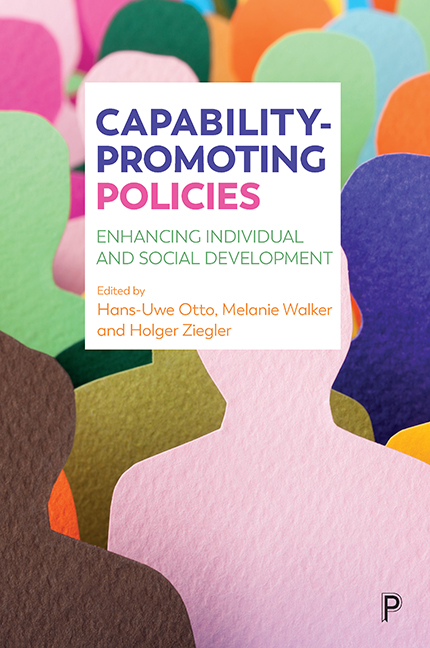Fourteen - Education for all? Providing capabilities for young people with special needs
Published online by Cambridge University Press: 12 April 2022
Summary
Introduction
Policies that support human development among young people with special education needs (SEN) and other young people on the edge of the society are the main focus of this chapter. This will be addressed through the case of a promising policy from Denmark that entitles all young people to upper secondary education regardless of their special educational needs or disability. In order to set the scene for this policy, let me briefly describe the current situation and the historical development in this regard. According to Martha Nussbaum's central list of capabilities, the benchmark for measuring the freedom or capability for education can vary depending on the current economic state of the society in question. Ever since the Second World War, primary and lower-secondary education has developed into a formal freedom for all in European countries. This does not mean that everyone has the real freedom to take full advantage of basic schooling, but only that basic schooling has formally become a more or less universal entitlement within Europe. International assessments of literacy show that even in developed countries with highly supportive welfare systems offering compulsory free schooling for all, a good proportion of pupils still do not reach an acceptable level of reading proficiency. Those who lag behind become disadvantaged in their further life-course, and pupils with a low level of reading competence later on in life are found among the group being characterised as having only compulsory education (lower-secondary) as the highest education at the age of 27. This group can be contrasted with those who reach a high level of reading proficiency measured in PISA 2000. They more often have a tertiary education. Until the age of 27 they are lower on risk for receiving social benefits and they are less likely to drop out of different educational programmes (Rosdahl 2014).
Starting with the increasing focus on human capital in the mid- 1960s pioneered by Gary Becker (Becker, 1993 [1964]) and the later introduction of mass education (mass universities) after the student revolts since the early 1970s, a larger proportion of the population in Europe is now educated to upper-secondary level or beyond. As a feature of this development in the educational landscape, the Danish parliament voted in favour of the so-called ‘Specially Arranged Youth Education’ (STU) Act, in 2007 (Ministry of Children and Education, 2007).
- Type
- Chapter
- Information
- Capability-Promoting PoliciesEnhancing Individual and Social Development, pp. 259 - 278Publisher: Bristol University PressPrint publication year: 2017



